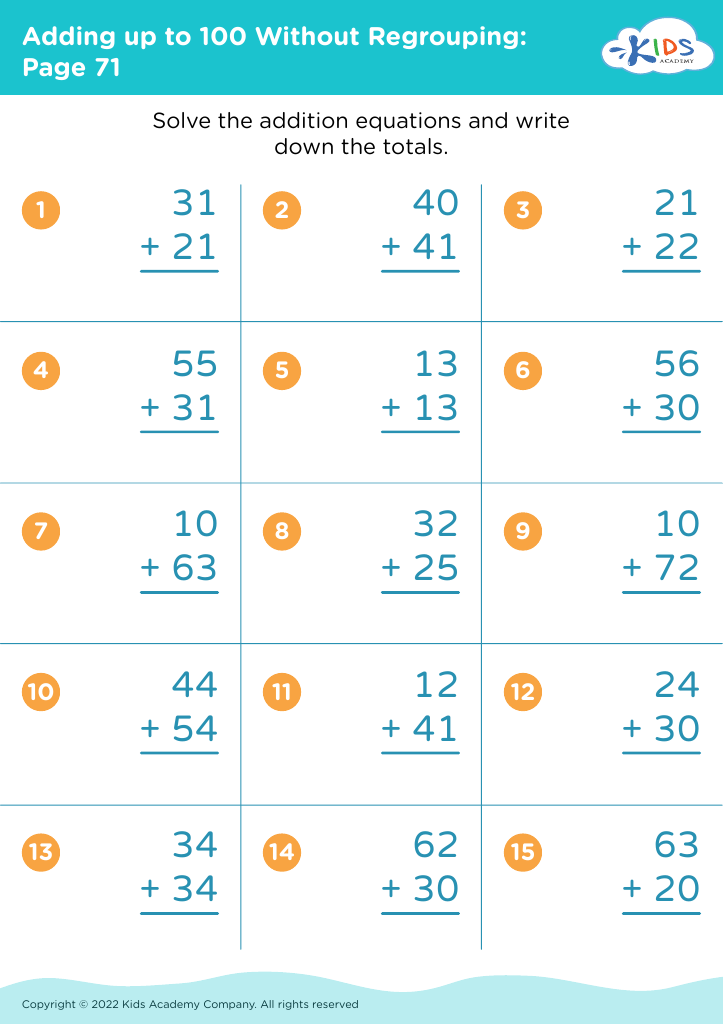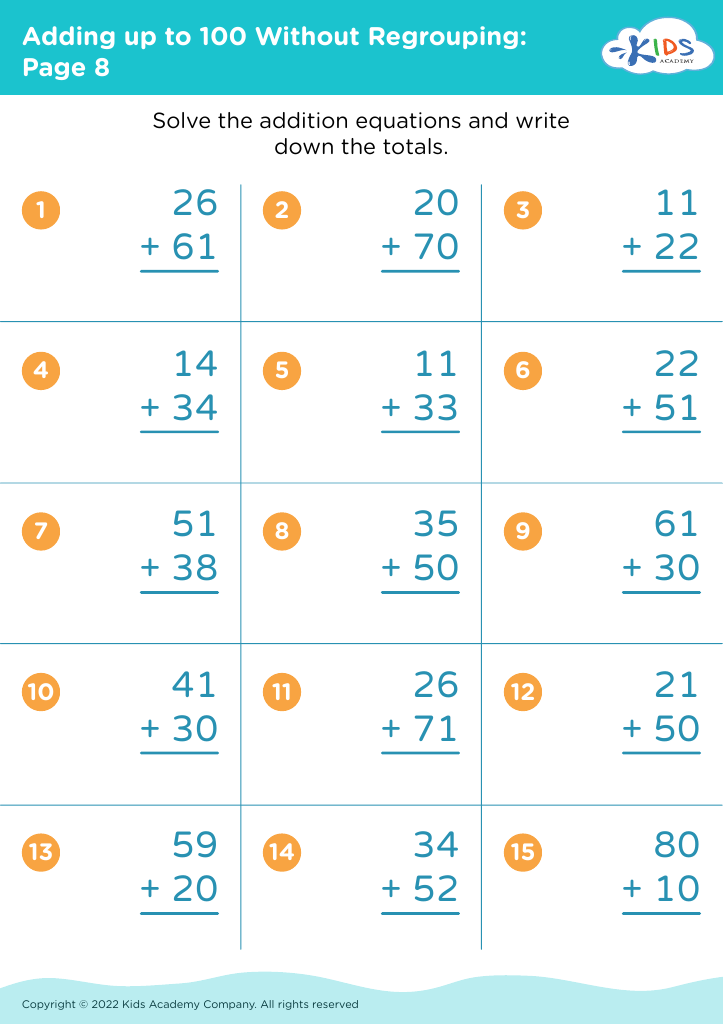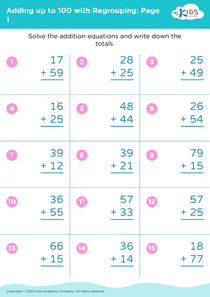Reading comprehension Adding up to 100 Without Regrouping Worksheets for Ages 3-8
3 filtered results
-
From - To
Unlock your child's potential with our engaging "Reading Comprehension Adding up to 100 Without Regrouping Worksheets" for ages 3-8. Perfectly designed to bolster foundational math skills, these worksheets simplify complex tasks without regrouping. Ideal for early learners, our fun activities develop reading comprehension along with arithmetic proficiency. Watch as young minds thrive and confidently tackle up to 100 with ease. Foster a love for learning and watch their skills multiply. Discover these carefully crafted resources at Kids Academy, and provide your child with the tools they need for future success!
Parents and teachers should prioritize building reading comprehension and basic arithmetic skills, like adding up to 100 without regrouping, for children aged 3-8 because these are foundational educational blocks. Reading comprehension allows young learners to understand and process information, fostering critical thinking and enabling independent learning. When children grasp the ability to comprehend stories, instructions, and factual content, they become more confident and motivated in their academic journey.
Simultaneously, mastering addition up to 100 without regrouping at this early stage builds essential numeracy skills that are the bedrock of more complex mathematical concepts. This basic arithmetic introduces children to the principles of numbers, addition, and problem-solving, which are applicable in everyday life and higher-level math concepts.
Combining both reading comprehension and basic addition ensures a balanced development of literacy and numeracy skills. It equips children to tackle various subjects, promotes cognitive development, and enhances their ability to apply knowledge practically. Furthermore, early mastery in these areas can lead to greater academic success, boost self-esteem, and foster a lifelong love for learning—building confident, capable individuals prepared for future educational challenges. Thus, the dual focus lays a solid groundwork for their overall intellectual growth.



















